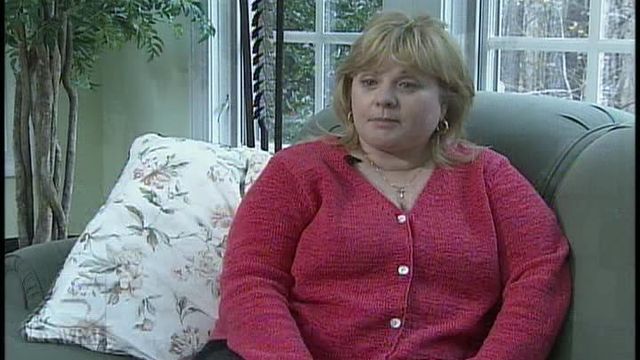Health Team
Depression in Women Could be Linked to Hormonal Changes
Some depression might be linked to natural hormonal changes in women's bodies, according to a doctor at UNC Hospitals.
Posted — UpdatedCHAPEL HILL, N.C. — Happily married with two grown children and a few grandchildren, Sharon Heath could not explain her increasing sadness.
A successful business owner in Chatham County, the 50-year-old could not sleep well and said she was more absent-minded and tearful.
She tried psychiatry and anti-depressants.
When she asked her psychiatrist if it might be because of hormonal issues, he told her that was something her gynecologist should address. Her gynecologist prescribed low-dose birth control pills.
"It got worse and worse and worse to where I was almost disabled completely," Heath said.
Then, she went to UNC Hospitals psychiatrist Dr. David Rubinow, who created the hospital's Mood Disorders Clinic modeled after a clinic he started with the National Institutes of Health 25 years ago.
It combines different health sciences, such as endocrinology, neurology, reproductive health and psychiatry, to understand the effects of hormonal changes linked to reproductive cycles in women.
Heath was going through menopause.
"It's so slow in occurring that people just think their lives have changed," Rubinow said. "It's part of aging, and they don't recognize that they can actually benefit enormously from treatment."
Rubinow carefully reviewed Heath's medical history and found her depression was the result of estrogen loss.
"He prescribed me an estrogen patch and within two days, the fog lifted, and I'm fine," Heath said.
She says the estrogen helps the anti-depressants she is taking work better.
The treatments and symptoms might vary for women: for example, the mood swings that might come with menstrual cycles or the depression that can follow childbirth.
"These are real disorders. They're associated with an enormous amount of morbidity and mortality if left untreated," Rubinow said.
But these mood disorders are often untreated because many doctors fail to identify the problem.
It took six years before Heath found her answer.
"To find out it was just my hormones, and I needed estrogen was just a miracle to me," she said.
• Credits
Copyright 2024 by Capitol Broadcasting Company. All rights reserved. This material may not be published, broadcast, rewritten or redistributed.





